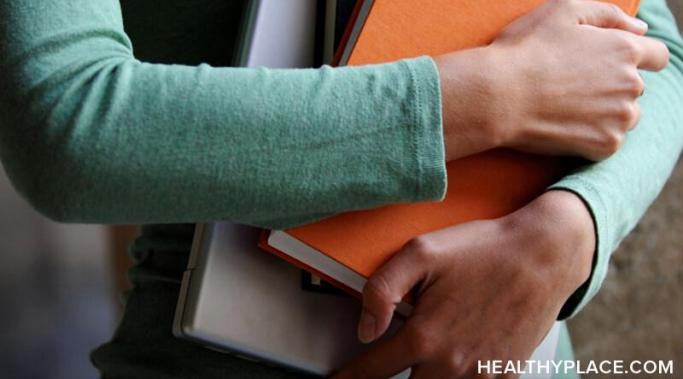Blogs
One afternoon, I talked to a friend after work about the disconnection I've been feeling lately with my child. My kid argues with almost everything I say (at least, it feels like everything), he never stops talking or moving, and he's been having problems at school. Sometimes I feel like I'm losing control of the situation because I'm not always sure what to do about my child's mental illness, much less how to treat it. What my friend asked me next was, "Have you tried coloring with him?"
We've all been there -- professional setbacks happen to everyone from time to time. You're passed over for a promotion, you mess up on an important project, or you're hit with a poor performance review that you didn't see coming. Maybe you've even been put on probation or, worse, terminated from your position. Or perhaps you have a patchy work history and feel doomed to repeat a perpetual cycle of hopping from dead-end job to dead-end job, never finding fulfilling work or achieving your full potential. And professional setbacks can be a big hit to one's self-esteem. In some ways, the stakes are higher when you work with bipolar disorder.
One of the first lessons I had to confront in eating disorder (ED) recovery is that, more often than not, triggers are unavoidable. As much as I still want to insulate myself from these triggers that activate my harmful thought patterns, sheer avoidance is an unrealistic goal. The fact is, I will encounter situations that trigger me because I am a human who lives in the world. Many areas of life are chaotic, stressful, anxiety-inducing, and just plain uncontrollable—I cannot hide from this reality. So, a more effective use of time is to equip myself with tools to deal with ED triggers in environments outside my control.
If you have difficulties with friendships and mental illness, you're not alone. Friendships are trickier than TV or movies make them seem. Also, living with mental health challenges--whether it's a diagnosed mental illness, personality disorder, or anxious thoughts and low mood that aren't diagnosable but still bothersome--adds a layer of difficulty to things that other people take for granted. You don't have to be forever frustrated by friendships or the lack of them. By starting with yourself and gradually moving outward with purpose, you can have quality, meaningful friendships no matter what mental health challenges you may face.
Self-help books have been immensely helpful in my journey to recover from mental illness and generally improve my self-worth, but despite their usefulness, I'm often ashamed to admit how many self-help books I read. In my family, I'm known as the "self-help junkie" and teased as if that is a bad thing.
It's important to develop self-compassion when you live with anxiety. One of the things I have found challenging about dealing with anxiety is feeling as though I should simply be able to stop feeling anxious. When I can't stop the endless string of intrusive thoughts and fears, or I can't stop worrying, I feel even more anxious and upset with myself because I feel like I should just be able to change my feelings.
Sleeping with purpose has worked wonders regarding my nightmares associated with posttraumatic stress disorder (PTSD). I struggled for years to obtain restful sleep due to nightmares and flashbacks related to my PTSD. I learned that being present before sleep at night allowed my mind to rest emptily and instead of it being full of thoughts. Here are some ways that helped me, and hopefully will help you, in being active and present in my sleep or sleeping with purpose.
Juliana Sabatello
Boundaries can be difficult for anyone in relationships, but emotional boundaries can be especially challenging for those of us who struggle with our mental health. I identify myself as a highly sensitive person (HSP), a term coined by Elaine Aron to describe people with sensory processing sensitivity. Sensory processing sensitivity involves processing sensory information more deeply and feeling emotions more strongly than the average person. Sensitivity applies to all experiences: Sound, sight, touch, smell, taste, internal sensations like hunger or pain, and both our own emotions and the emotions of others.
Music can be an excellent tool to regulate and process difficult emotions. It can also serve as a self-harm distraction and a temporary escape into a world of sounds and rhythm. Research also suggests that music can help you develop greater self-awareness, which is essential for long-term self-harm management.
When we're supporting someone with mental illness, I think it's very important to constantly examine how healthy our relationship with that person is. As my brother lives with chronic mental illness, I have first-hand experience of how unhealthy behaviors can easily creep into relationships, even with the best of intentions.










I read this book many years ago, just as I was entering the turmoil of remembering, questioning and doubting myself all the way (as I'd been covertly taught over a lifetime). I happened to mention to my two sisters one day, "This is so strange but I've been diagnosed with PTSD." Both my sisters surprised me by responding, "Me too."
THEN I happened upon an old book manuscript that my now deceased father had written (not published), wherein the protagonist was obviously based upon himself and he rapes his "fiancee," who had my unusual name. Yes, truly.
Then I made myself look at the peculiar memory I always had where he violently threatened me but somehow I had never been able to recall what came before or after the episode. I had to admit that was a bit strange.
The pressures and powers to forget sexual abuse are great, both in family and society. In fact, I've come to the sad conclusion that the vast majority of survivors never really deal with their childhood wounds (a neglect for which there are always repercussions).
To critique an encouragement of people trusting their intuition in such matters is really getting the prescription dangerously wrong.
Thanks!